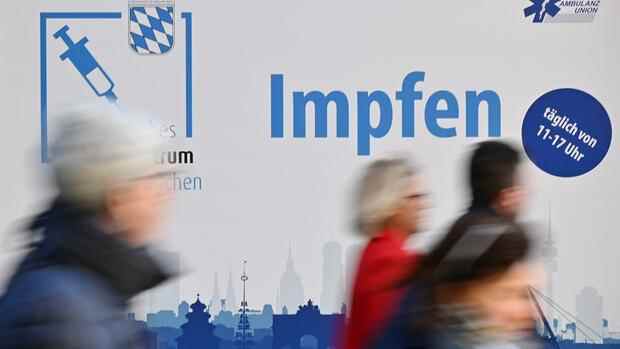The third vaccination is important to get a grip on the fourth wave.
(Photo: ddp / Sven Simon)
Germany has ruined its reputation as a pandemic model country. Until the summer, other countries looked appreciatively at the vaccination rate, the generous help for the economy and the low number of cases. But if you are talking to friends abroad these days, you will see stunned faces.
Germany’s reputation in the pandemic ranks on a par with that of Russia, the United States under Donald Trump and Great Britain. That may not seem entirely fair to some, and countries like Austria, Belgium and the Netherlands are also having a hard time getting through the crisis.
But Germany is the most prominent newcomer to the club of states where the crisis is spiraling out of control. The term “the sick man of Europe”, as the “Economist” described Germany in 1999 because of delayed reforms, is experiencing an inglorious return. But we don’t have years to fight our way out of the crisis like at the turn of the millennium, but at most days.
This requires united forces. An empty phrase, but it has never been more appropriate. When 416 delegates from the traffic light decide on an alternative to the epidemic situation on Thursday and 16 prime ministers confer with the chancellor, that’s exactly what we want them to do: join forces. Yes, the federal and state governments as well as the traffic lights are blaming themselves for the situation.
Top jobs of the day
Find the best jobs now and
be notified by email.
The Union even wants to block the traffic light plans in the Federal Council. In essence, however, it is about the question of which measures can be used to bring the pandemic under control. Just as abroad looks at Germany, a look abroad from Germany also helps with this question. Boosters, duties, freedoms – this is the way out of the crisis.
On the one hand, a second, historic vaccination campaign is needed. 30 million people will have to have the third vaccination by the end of the year. If you factor out Christmas, more vaccinations are required per day than Germany managed during its vaccination miracle in the summer.
The third vaccination is extremely important
To do this, the countries have to reactivate their infrastructures and ramp up the vaccination centers. A plan that achieves this goal would send a strong signal to the federal-state conference. Israel shows how important the third vaccination is – the country is now getting through the fourth wave well without any significant measures.
Second, there are obligations, including the obligation to vaccinate in the medical field. The traffic light pushes itself ahead of this and does not want to make a decision until the coming weeks. That’s too late. Italy has had the rule since May, France since September. The collateral damage from mass layoffs has not materialized. Control is a must, and here too, others are showing Germany how to do it. Countries such as Italy and now also Austria control the vaccination certificate more strictly. With lax controls, nobody has to wonder why a 2G or 3G rule hardly motivates people to vaccinate.
And thirdly, there is a need for freedom. There will be no lockdown for those who have been vaccinated; the population has not forgotten this promise. But it is already showing the first cracks. Christmas markets are canceled, which the traffic light plans allow as well as the closure of clubs, other leisure and sports facilities. The Netherlands, where restaurants, supermarkets and shops have to close earlier, must serve as a deterrent.
Lockdown? Never again – politics must not forget this motto. In order to keep it up, she now has to take countermeasures quickly and unitedly.
More: Decision day: How traffic lights, federal and state governments want to realign the corona policy
